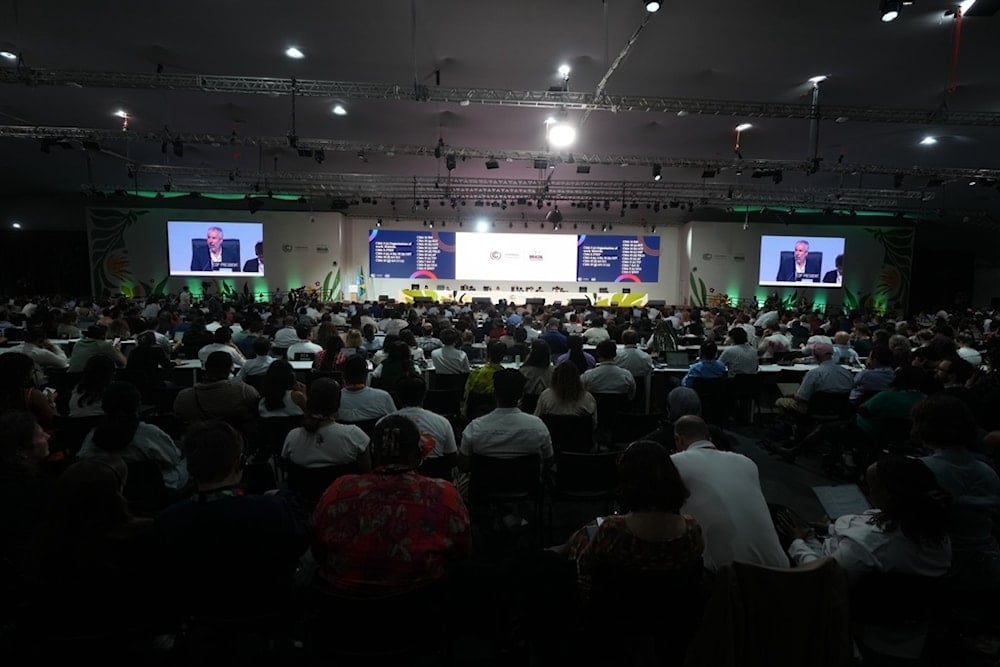COP30 climate talks in Brazil yield tentative deal on climate finance
COP30 in Brazil ends with a tentative deal to increase climate finance and review emissions policy, though fossil fuels are left out of the main accord.
-

André Corrêa do Lago, COP30 president, speaks during a plenary session at the COP30 UN Climate Summit, Saturday, November 22, 2025, in Belem, Brazil (AP)
The COP30 climate talks in Brazil have reached a tentative agreement after lengthy negotiations over cutting greenhouse gas emissions and expanding climate finance support for developing nations.
The two-week Brazil climate summit, initially set to conclude Friday, went into overtime as countries struggled to find common ground. A draft deal issued Saturday indicated progress on several fronts but left out binding language on the global move away from fossil fuels, a key demand from the European Union that faced opposition from the Arab Group, including top oil exporter Saudi Arabia.
Instead, fossil fuel commitments will appear in a separate text outside the official agreement.
Read more: US out, China in: Beijing fills in climate leadership at Brazil COP30
Fossil fuels excluded from official agreement text
COP30 President Andre Correa do Lago confirmed that the presidency would publish two side “roadmaps” covering fossil fuels and forest protection, explaining that consensus could not be reached on including them in the formal accord.
“I will announce that the Brazilian presidency will do the two 'roadmaps' because visibly we did not have maturity to reach consensus. I believe if we do it under the presidency we will have results,” he said.
He added that developing countries' concerns were addressed by this approach.
Read more: More than 300 big agriculture lobbyists took part in COP30
Climate finance pledge tripled to support developing nations
One breakthrough in the tentative deal is a pledge to triple climate finance by 2035. The move answers a long-standing demand from poorer nations grappling with worsening climate impacts, such as rising sea levels, extreme heat, and severe storms.
"COP30 has not delivered everything Africa asked for, but it has moved the needle," said Jiwoh Abdulai, Sierra Leone's environment minister. "There is clearer recognition that those with historical responsibility have specific duties on climate finance."
EU voices cautious support, calls for stronger action
Despite setbacks on fossil fuel language, EU climate commissioner Wopke Hoekstra signaled cautious support for the deal.
"We should support it because at least it is going in the right direction," he told reporters.
Delegates warned, however, that the agreement remains vulnerable to last-minute objections, as any final text requires full consensus.
Read more: Rich nations owe poor countries $192 tln for climate crisis: Study
African nations say talks made limited progress
While the deal satisfied some demands from developing nations, it fell short of broader expectations, particularly on enforceable language around phasing out fossil fuels.
A Leaders’ Declaration from a concurrent G20 meeting in South Africa underscored the urgency of climate change, indirectly criticizing US President Donald Trump, who has dismissed global warming as a “hoax” and prioritized fossil fuel production.

 3 Min Read
3 Min Read










